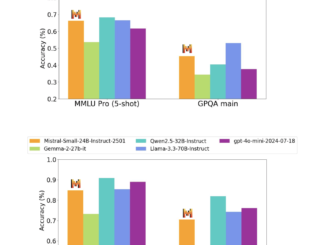
Microsoft and OpenAI are probing a probable violation of the AI company’s system by a faction purportedly associated with the Chinese AI startup DeepSeek.
According to Bloomberg, the inquiry originated from dubious data extraction activity observed in late 2024 through OpenAI’s application programming interface (API), raising wider concerns regarding global AI competition.
Microsoft, the primary financial supporter of OpenAI, initially detected the extensive data extraction and alerted the ChatGPT creator about the situation. Sources suspect the conduct may have breached OpenAI’s service terms, or that the group could have utilized vulnerabilities to circumvent limitations on how much data they were permitted to gather.
DeepSeek has swiftly ascended in the fiercely competitive AI arena, especially following the debut of its most recent model, R-1, on January 20.
Promoted as a competitor to OpenAI’s ChatGPT in functionality but created at a considerably lower expense, R-1 has disrupted the technology realm. Its launch precipitated a significant drop in technology and AI stock prices, erasing billions from US markets in one week.
David Sacks, the newly appointed “crypto and AI czar” at the White House, asserted that DeepSeek may have employed dubious tactics to attain its AI competences. In a discussion with Fox News, Sacks mentioned evidence indicative that DeepSeek had utilized “distillation” to train its AI models using outputs from OpenAI’s platforms.
“There’s considerable evidence that what DeepSeek did here is they distilled knowledge out of OpenAI’s models, and I don’t think OpenAI is very pleased about this,” Sacks stated to the network.
Model distillation entails training one AI framework using data produced by another, which could potentially enable a rival to cultivate similar functionality. This approach, when executed without appropriate authorization, has ignited ethical and intellectual property discussions as the global race for AI dominance intensifies.
OpenAI refrained from commenting specifically on the claims against DeepSeek but acknowledged the wider threat posed by model distillation, particularly from Chinese enterprises.
“We acknowledge that PRC-based companies — and others — continuously attempt to distill the models of leading US AI enterprises,” a representative for OpenAI informed Bloomberg.
Geopolitical and security apprehensions DeepSeek
Escalating tensions surrounding AI innovation are now encroaching upon national security concerns. CNBC reported that the US Navy has prohibited its personnel from engaging with DeepSeek’s products due to apprehensions that the Chinese government might exploit the platform to obtain sensitive information.
In an email dated January 24, the Navy cautioned its personnel against utilizing DeepSeek AI “in any capacity” due to “possible security and ethical apprehensions related to the model’s origin and application.”
Critics have spotlighted DeepSeek’s privacy policy, which allows for the gathering of data such as IP addresses, device details, and even keystroke patterns—a range of data collection deemed excessive by numerous experts.
Earlier this week, DeepSeek announced it was experiencing “large-scale malicious attacks” against its infrastructure. A banner on its website notified users of a temporary sign-up limitation.
The intensifying rivalry between the US and China, particularly in the AI domain, has highlighted broader anxieties concerning technological ownership, ethical governance, and national security.
Experts caution that as AI technologies progress and become increasingly vital to global economic and strategic planning, conflicts regarding data utilization and intellectual property are likely to escalate. Allegations such as those directed at DeepSeek heighten concerns about China’s swift advancement in the sector and its potential effort to circumvent US-led protections through reverse engineering and other methods.
While OpenAI and Microsoft pursue their investigation into the purported misuse of OpenAI’s platform, corporations and governments alike are monitoring the situation closely. This case could establish a standard for how AI developers manage model usage and uphold service terms.
For now, the reactions from both US and Chinese stakeholders underscore how AI innovation has evolved into not merely a contest for technological preeminence, but a tense geopolitical struggle that is shaping the power dynamics of the 21st century.
(Image by Mohamed Hassan)
See also: Qwen 2.5-Max outperforms DeepSeek V3 in some benchmarks
Want to learn more about AI and big data from industry leaders? Check out AI & Big Data Expo taking place in Amsterdam, California, and London. The extensive event is co-located with other prominent events including Intelligent Automation Conference, BlockX, Digital Transformation Week, and Cyber Security & Cloud Expo.
Explore other forthcoming enterprise technology events and webinars powered by TechForge here.








Be the first to comment